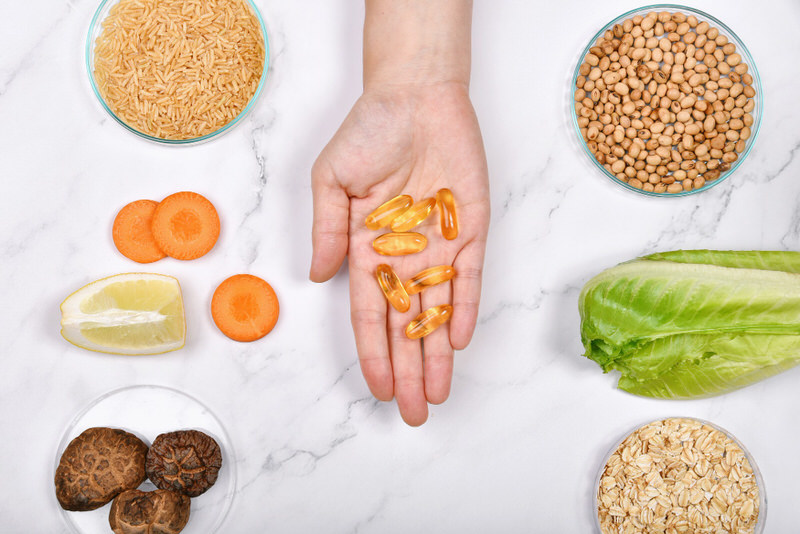Accidentally taking two multivitamins is not a cause for concern if it’s a rare occurrence. Although if you’ve been consuming more than the advised dosage over some time, it can cause serious health issues, including severe toxicity. They can affect your kidney and immune system, causing a lot of health problems.
Multivitamins have become part and parcel of our life today. Doctor-recommended vitamins are something that helps in replenishing our body’s vitamins. Although it is recommended to eat healthy instead and not look into vitamin supplements’ direction, they are harmful in no way.
Almost all vitamin supplements come with detailed instructions on when to take them during your day and are easy to understand. But anything consumed in excess is harmful to our body, be it these multivitamin supplements.
Is taking two multivitamins deadly?

Vitamins are always prescribed in a fixed-dose. Even the description at the back of a vitamin bottle will tell you to take one at a time. But even if you mistakenly end up taking two multivitamins at a time, it is not a cause of significant concern.
We can all make such mistakes, and taking two multivitamins won’t cause any trouble in your body. If this is a rare occurrence, then there’s nothing to worry about.
However, if this happens multiple times, then it might result in some problems.
Multivitamin overdose effects
Suppose you have been taking more multivitamins than the suggested prescription for any reason. In that case, it can put your health in danger and cause severe toxicity.
When consumed in large doses for a more extended period, certain nutrients may affect the kidneys. It can increase the risk of bleeding and promote the formation of calcium stones, among other side effects.
Multivitamin also contains zinc, and too much of it can affect copper absorption, reduce good cholesterol levels and affect your immune system. You may also experience nausea, vomiting, abdominal pain, diarrhea, and other digestive symptoms.
When we take multivitamins in large doses, they affect every system in our body. Potential side effects include joint, bone, and muscle pain, eye irritation, frequent urination, irritability, fatigue, mood swings, and change in bowel habits, reported by the U.S. National Library of Medicine.
Other symptoms include unintentional weight loss, lack of appetite, intestinal bleeding, hair loss, dry skin, seizures, confusion, cloudy urine, and bloody diarrhea.
Effects of different vitamins taken in large doses:
- Vitamin A can cause nausea, vomiting, blurry vision, dizziness, and other mild adverse reactions. Over time, you might experience severe effects, such as liver damage, joint pain, and bone thinning.
- Too much iron can lead to fluid buildup in the lungs, low blood pressure, irregular heartbeat, liver damage, convulsions, fever, and coma.
- Vitamin D excess may lead to bone pain, calcium stones, and toxicity.
- Calcium may lead to kidney stones, constipation, and poor absorption of iron and zinc.
- Vitamin E increases the risk of bleeding when consumed in excess.
How to take your multivitamins?

The number one tip is strictly following your doctor’s prescription or as directed on the bottle’s label.
Now that we have established why you should never overdose on multivitamins and what happens if you do, it’s vital to know how to take them properly.
- Always drink a full glass of water while taking a multivitamin.
- Place the sublingual tablet under your tongue and allow it to dissolve completely. Do not chew a sublingual tablet or swallow it whole.
- Measure liquid medicine carefully and only drink the recommended quantity.
- Complete the course that has been prescribed by your doctor and try not to miss a day.
The first thing doctor recommends is to naturally replenish your depleted body vitamins by eating healthy. Eating a well-rounded diet can help you achieve that over time.
Multivitamins are recommended due to some reasons such as age, genetic disorder, medical conditions, and diet.
Is taking multivitamins necessary?

Together approximately 40% of Americans take a daily multivitamin. About 83% of adults aged 18-34 and 75% of those aged 35-54 take multivitamins. These tablets are supposed to fill the nutrient gaps and prevent deficiencies.
Although what is more important than taking these multivitamins will always be a balanced diet that can provide the needed vitamins and minerals for a healthy body and mind. Not even multivitamins can replace that.
This is why it is prescribed to those who aren’t able to fulfill their body’s vitamin needs through a balanced diet. Certain illnesses affect the ability to absorb nutrients.
This is the reason the doctor prescribes taking multivitamin supplements instead.
Multivitamin: boon or bane?
These might not be the magic pills you think them to be. Not in all cases are multivitamins beneficial to one’s health. Multivitamins have no effect on the risk of cancer, heart disease, or early death. Researches have found no association between multivitamins and chronic disease prevention.
Multivitamins don’t protect against cardiovascular problems, mental decline, heart attack, or premature death, concluded by Johns Hopkins nutrition experts after conducting their own research and analyzing several studies and reviews.
On the other hand, long-term use of multivitamin supplementation may reduce the risk of heart disease in men.
Taking these supplements may lower blood pressure in healthy people. Therefore, it’s hard to say whether or not these supplements are actually helpful.
Frequently Asked Questions (FAQs)
Can overdosing on multivitamins kill you?
If you’re taking more than the prescribed dosage of multivitamins a day for a longer period of time, it can cause some serious health issues. Mainly leading to severe toxicity in your body, causing damage to your lungs over time.
Can you die of vitamin C overdose?
Vitamin c supplement overdose won’t kill you if you have no other health issues. However, it can seriously impact your health and have some severe consequences to it.
Can vitamins cause weight gain?
Vitamin B doses below their toxicity threshold strongly promote fat gain. Formulas that have high levels of vitamins promote weight gain, especially fat mass gain. Thus, it is crucial to consult a doctor and take the prescribed dosage.
Do multivitamins have side effects?
Minerals taken in large doses can cause tooth staining, increased urination, stomach bleeding, confusion, muscle weakness, or limp feeling. As always, it is advised to take the prescribed dosage over time to avoid any severe side effects.
How do you flush vitamins out of your system?
Water-soluble vitamins have less tendency to cause harm because they can be flushed out of the system with water. In contrast, fat-soluble vitamins are absorbed slowly and stored longer.
To summarize
Multivitamins have become pretty standard in our day-to-day life. They are consumed by a good percentage of people to replenish their body’s needs for vitamins. Although taking a balanced diet is recommended by doctors, but due to certain factors, multivitamins are advised to some people based on their medical conditions.
The most important part is to keep track of your dosage for the time it has been suggested. But multivitamins can easily prove to be harmful to your health if you overdosed on them. It can cause serious health issues and can affect your body in different ways.
There’s no easy way out of it, so you just have to be careful not to overdose on multivitamins. Even if you feel like your body needs more, just try to intake a balanced diet alongside so you’ll no more need these supplements.


